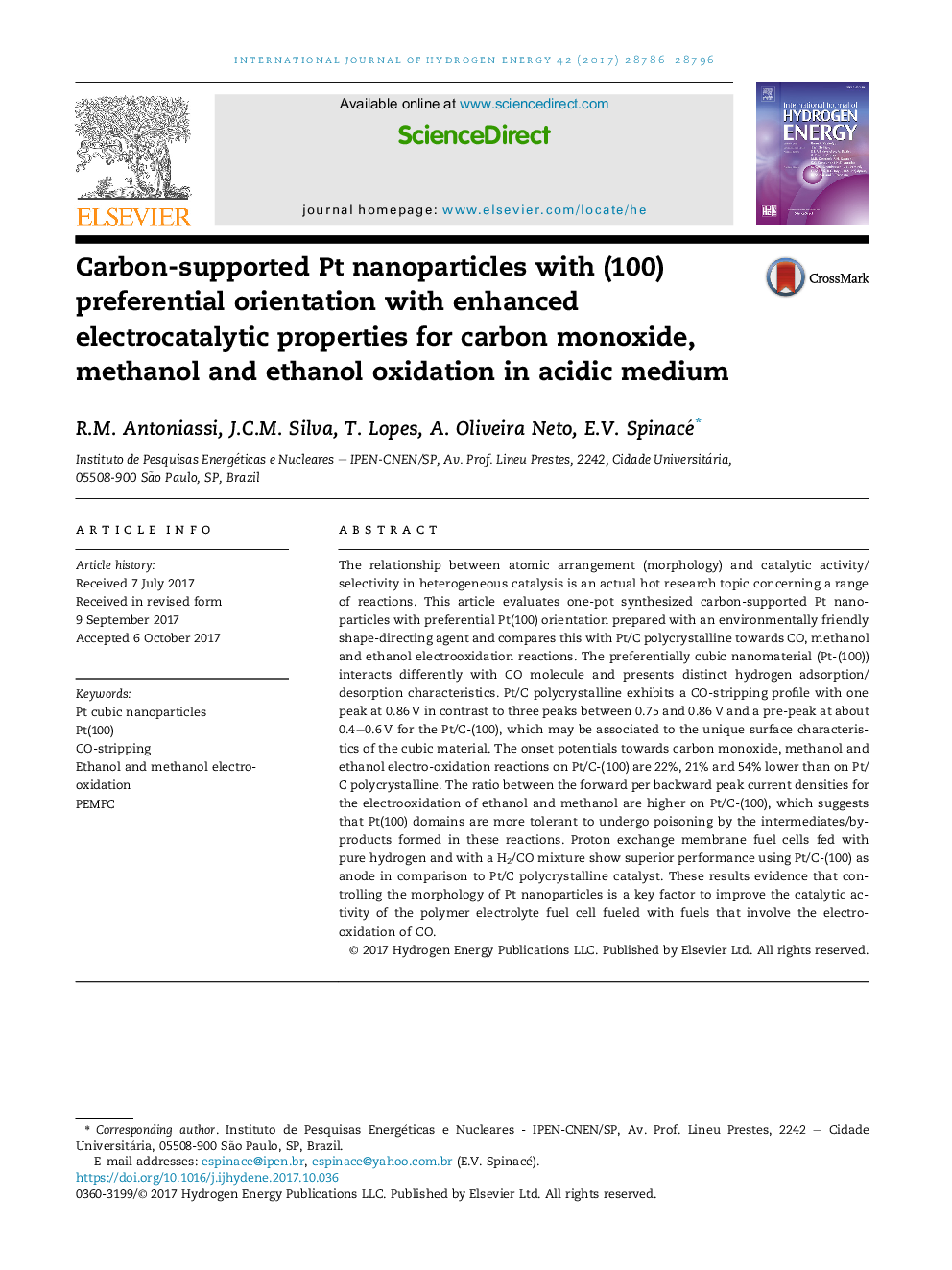| کد مقاله | کد نشریه | سال انتشار | مقاله انگلیسی | نسخه تمام متن |
|---|---|---|---|---|
| 7709254 | 1497329 | 2017 | 11 صفحه PDF | دانلود رایگان |
عنوان انگلیسی مقاله ISI
Carbon-supported Pt nanoparticles with (100) preferential orientation with enhanced electrocatalytic properties for carbon monoxide, methanol and ethanol oxidation in acidic medium
دانلود مقاله + سفارش ترجمه
دانلود مقاله ISI انگلیسی
رایگان برای ایرانیان
کلمات کلیدی
موضوعات مرتبط
مهندسی و علوم پایه
شیمی
الکتروشیمی
پیش نمایش صفحه اول مقاله

چکیده انگلیسی
The relationship between atomic arrangement (morphology) and catalytic activity/selectivity in heterogeneous catalysis is an actual hot research topic concerning a range of reactions. This article evaluates one-pot synthesized carbon-supported Pt nanoparticles with preferential Pt(100) orientation prepared with an environmentally friendly shape-directing agent and compares this with Pt/C polycrystalline towards CO, methanol and ethanol electrooxidation reactions. The preferentially cubic nanomaterial (Pt-(100)) interacts differently with CO molecule and presents distinct hydrogen adsorption/desorption characteristics. Pt/C polycrystalline exhibits a CO-stripping profile with one peak at 0.86â¯V in contrast to three peaks between 0.75 and 0.86â¯V and a pre-peak at about 0.4-0.6â¯V for the Pt/C-(100), which may be associated to the unique surface characteristics of the cubic material. The onset potentials towards carbon monoxide, methanol and ethanol electro-oxidation reactions on Pt/C-(100) are 22%, 21% and 54% lower than on Pt/C polycrystalline. The ratio between the forward per backward peak current densities for the electrooxidation of ethanol and methanol are higher on Pt/C-(100), which suggests that Pt(100) domains are more tolerant to undergo poisoning by the intermediates/by-products formed in these reactions. Proton exchange membrane fuel cells fed with pure hydrogen and with a H2/CO mixture show superior performance using Pt/C-(100) as anode in comparison to Pt/C polycrystalline catalyst. These results evidence that controlling the morphology of Pt nanoparticles is a key factor to improve the catalytic activity of the polymer electrolyte fuel cell fueled with fuels that involve the electro-oxidation of CO.
ناشر
Database: Elsevier - ScienceDirect (ساینس دایرکت)
Journal: International Journal of Hydrogen Energy - Volume 42, Issue 48, 30 November 2017, Pages 28786-28796
Journal: International Journal of Hydrogen Energy - Volume 42, Issue 48, 30 November 2017, Pages 28786-28796
نویسندگان
R.M. Antoniassi, J.C.M. Silva, T. Lopes, A. Oliveira Neto, E.V. Spinacé,